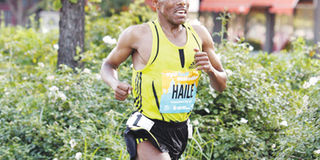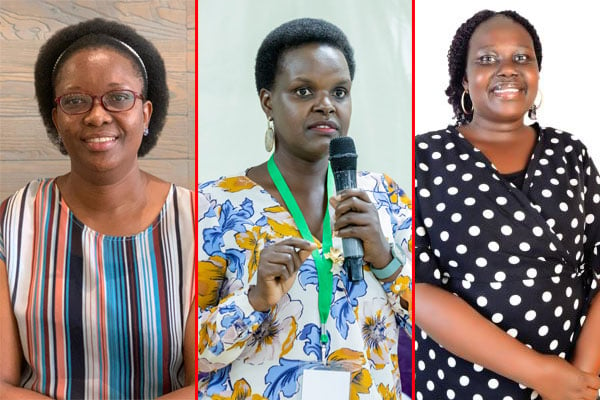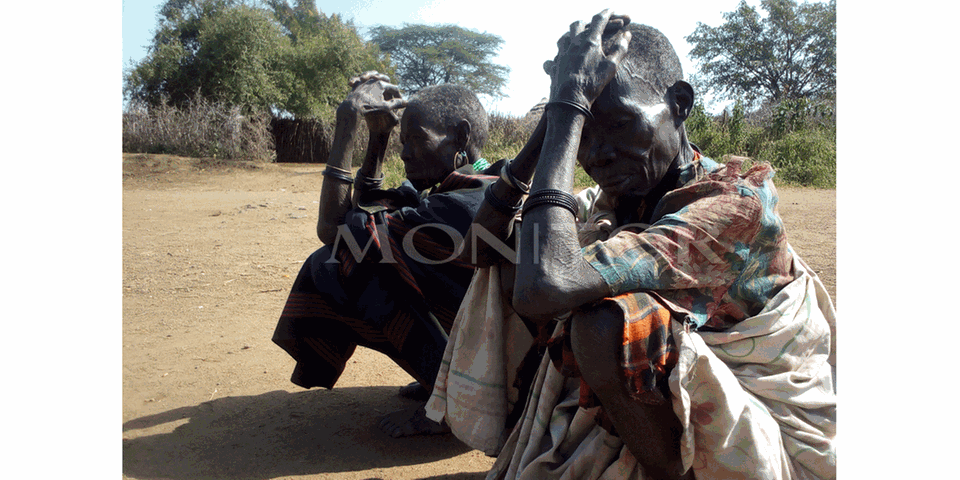Prime
Haile Gebrselassie: The greatest distance runner of all times

Standing at 5 feet 5 inches, Gebrselassie is a slight man whose talents and genius far outweigh his small frame. In two decades, he has held 27 world records, in all manner of distance running, writes Pamela Natukunda.
B orn on April 18, 1973 as one of 10 children growing up on a farm in Ethiopia, Haile Gebrselassie ran 10km to school every morning and covered the same distance back home in the evenings. During the rainy season, in order to get to the first lesson, he would run really fast because he had to cross a river to get to school. To do this, he and his colleagues would run along the bank until they found a shallow point, since there was no bridge.
Gebrselassie, also known as Geb, put that experience to good use in later years; a foundation upon which he built a long and lustrous career in long distance running, a career that has been highlighted with fame and fortune.
Todate, he runs with a distinctive posture of a crooked left arm as if he were carrying schoolbooks. But while he was really fast on his tiny feet, he was not faster than his father. “He was not a runner, my father, but he was quick. I remember it was very difficult to escape him when he was angry. If he wanted to beat us, he would always catch us. Even me, he could always catch me,” he once said of his childhood.
Despite his numerous talents, Gebrselassie’s father did not think he would earn any income from the sport. “My father thought sport was something fun – he didn’t know it was a way to make money. Then I won a Mercedes at the world championships and I gave it to him. From the moment it arrived, my father said: ‘Good, you can support not just yourself but me too’.” He ran for fun and to escape. Gebrselassie grew up through the horrors of the famine of the mid-1980s. “Cows died, crops failed, we had two big rivers and they were bone dry. The next river was two days’ journey away,” he said. “We were lucky. My father was very careful and always kept some food in reserve. But if the rains had stayed away for another year I would not be here.”
For years now, the petite runner has accumulated a fan base so large and inspired young Africans to join the sport. Every time he has appeared on the track, he has not disappointed, for he mostly lived up to the fans’ expectations. However, he brought all that love and adulation to a crashing halt when he dropped out of the New York City Marathon in November 2010 with an inflamed knee and promptly announced his immediate retirement.
As if regretting his haste, Gebrselassie posted days later on his Twitter account that he was reconsidering his decision and would run in the 2012 London Olympics. But first, he is expected to mark his return at the Tokyo Marathon today, February 27, 2011. He has also stated previously that he would like to enter politics after retiring.
But how does this man maintain his running and training schedule and still be able to man a nine to five desk job, which involves a business empire employing 600 workers? He wakes up at 5:30a.m daily for a three-hour rigorous morning training session. And two months before a competition, he does about 35km for the morning session. In the evening, he spends most of his time in the gym doing strength work; 10km on the treadmill and another 10km on the bike. At the end of the week, he will have clocked 220km on average.
However, there is nothing average about this African phenomenon. He owns two hotels, a fitness centre, a cinema, a car dealership and 1,200 children attend the two schools he opened. In an interview with international media, Gebrselassie has talked about how he could have invested his money anywhere in the world but chose instead to invest it in his home country. While he said it was not enough, he hoped it would show others what is possible in a country that has suffered famine for years. The 37-year-old lives in Addis Ababa with his wife Alem and daughters Eden, Melat and Batiy.
Gebrselassie first gained international recognition in 1992 when he won the 5000m and 10,000m races at the Junior World Championships in Seoul, and a silver medal in the junior race at the World Cross Country Championships.
The following year, in 1993, he won the first of what would eventually be four consecutive world championships titles in the men’s 10,000m at the 1993, 1995, 1997 and 1999 World Championships. In 1994 he won a bronze medal at the IAAF World Cross Country Championships. Later that year he set his first world record by running a 12:56.96 in the 5,000m, breaking Said Aouita’s record by two seconds. He won the Berlin Marathon four times consecutively and was the 2001 World Half Marathon Champion.
Since leaving the track after the 2004 Olympics, Gebrselassie has focused on road racing and the marathon. He broke 61 Ethiopian National Records ranging from 800m to the marathon, set 27 world records, and is widely considered one of the greatest distance runners in history. In September 2008, at the age of 35, he won the Berlin Marathon with a world record time of 2:03:59, breaking his own world record by 27 seconds. Since he was over the age of 35, that mark also is the Masters Age group world record.
At the 2008 Beijing Olympics, Gebrselassie withdrew from the marathon because of the air pollution levels. He suffers from asthma and because it was difficult to breathe, his family urged him not to run. He has been quoted as saying, “Without running there is no life.”




